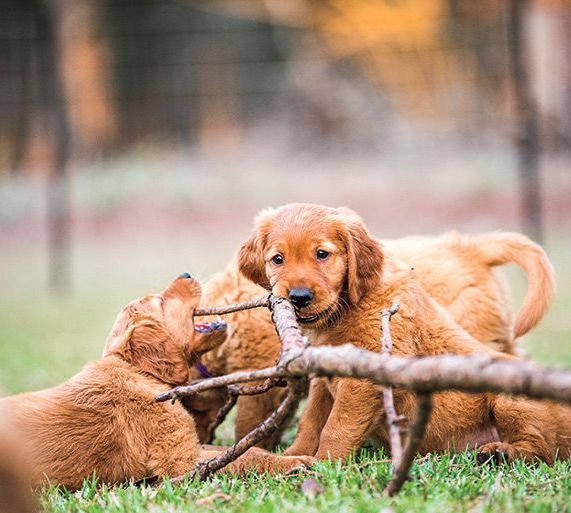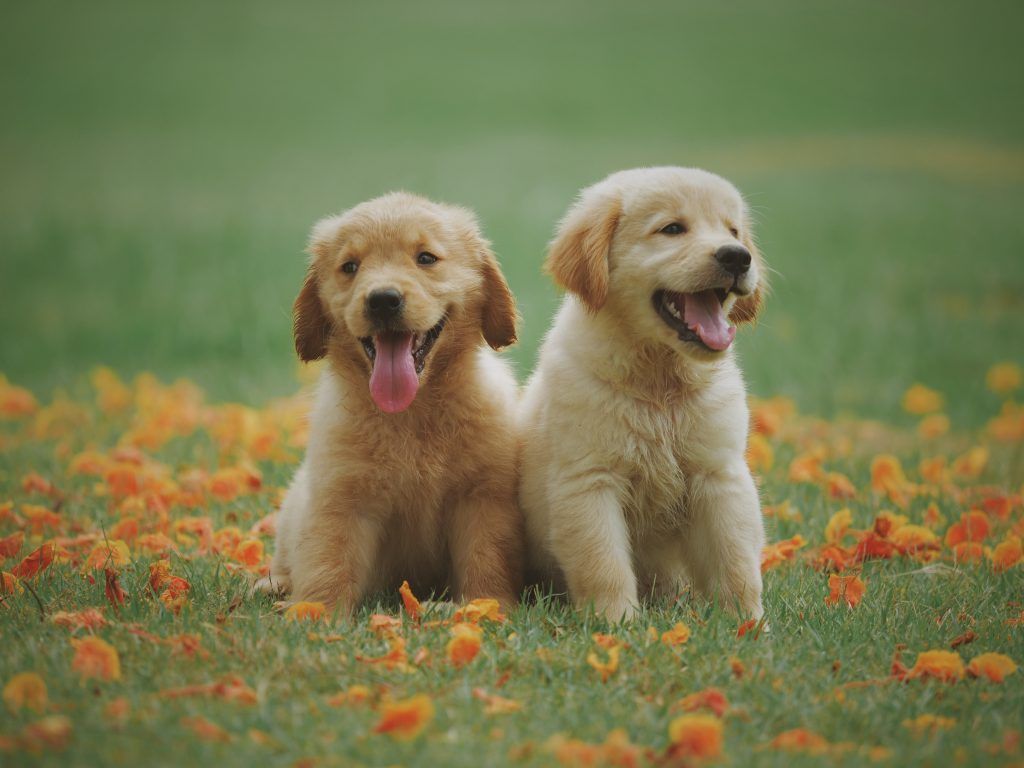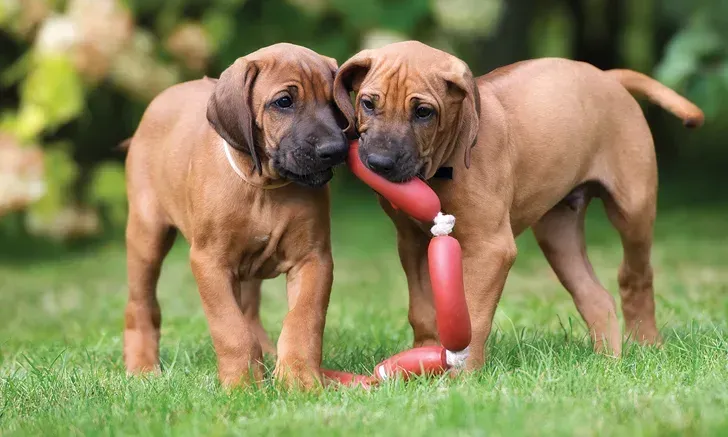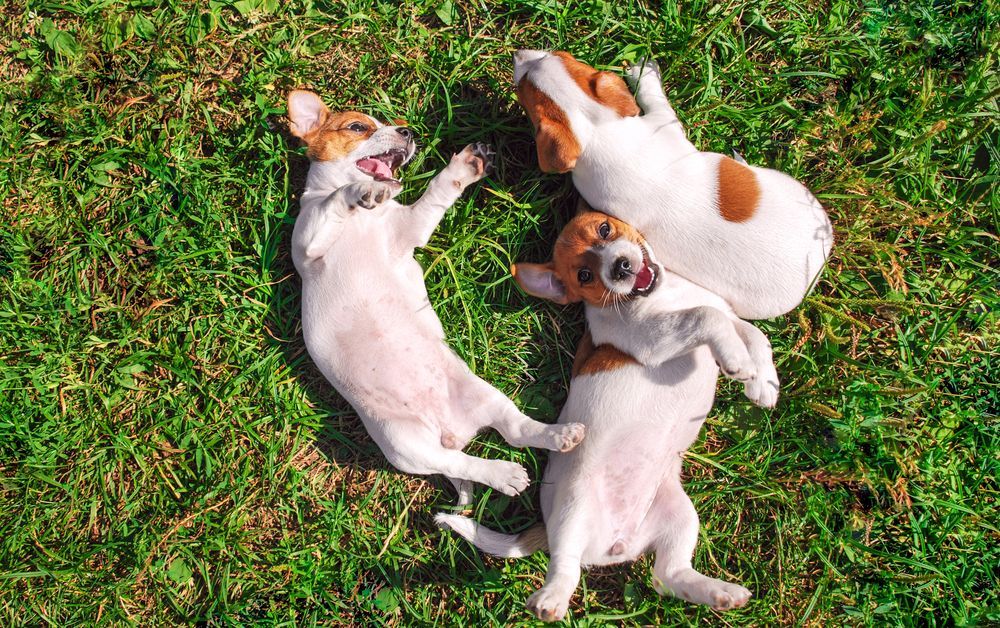Why Socializing Your Puppy Early Is So Important
Doing Puppy Socialization the Right Way
When people hear the word "socialization" in the context of puppies, they often picture dogs running around at a park, playing together. And yes, that’s part of it—but real socialization goes way beyond puppy playdates. It’s actually about helping your puppy learn how to feel safe and confident in a variety of situations they’ll face throughout their life. Socialization is all about positive exposure. This includes meeting different kinds of people (kids, adults, people with hats, sunglasses, or wheelchairs), seeing other animals, hearing strange sounds like vacuums or car horns, and experiencing new environments like vet clinics, busy streets, or elevators. When puppies get exposed to all of this in a positive, low-pressure way, they learn that the world isn’t such a scary place.
The ideal window for socialization is between 3 and 14 weeks of age. During this period, a puppy’s brain is developing super fast, and they’re more open to new experiences. Puppies are naturally curious at this stage, so it’s the perfect time to teach them that new things are normal and even fun. After this window closes, it gets harder—but not impossible—to introduce new things without triggering fear or stress.
Socialization doesn’t mean throwing your puppy into overwhelming situations. It’s about gradually introducing them to new things in a way that feels safe and manageable. For example, instead of walking your 10-week-old pup straight into a loud dog park, you might start by letting them watch other dogs from a distance while they munch on treats. That way, they’re seeing something new but still having a positive experience.
Let your puppy explore new people, sounds, or environments at their own pace. If they’re hesitant, don’t force it—just hang back and let them figure it out with your encouragement and some rewards. The goal isn’t to expose them to as much as possible, but to help them feel safe and confident in the world around them. Treats and praise are key. Every time your pup has a good experience with something unfamiliar, you’re helping build a strong, confident adult dog. Walk on different surfaces like grass, wood floors, gravel, or metal grates. Let them hear weird sounds like sirens or skateboards. These little experiences add up in a big way.
Speak With A Dog
Training Expert
Speak With A Dog Training Expert
Thank you for contacting us!
We will contact you shortly!
Please try again later.

Doing Puppy Socialization the Right Way
When people hear the word "socialization" in the context of puppies, they often picture dogs running around at a park, playing together. And yes, that’s part of it—but real socialization goes way beyond puppy playdates. It’s actually about helping your puppy learn how to feel safe and confident in a variety of situations they’ll face throughout their life. Socialization is all about positive exposure. This includes meeting different kinds of people (kids, adults, people with hats, sunglasses, or wheelchairs), seeing other animals, hearing strange sounds like vacuums or car horns, and experiencing new environments like vet clinics, busy streets, or elevators. When puppies get exposed to all of this in a positive, low-pressure way, they learn that the world isn’t such a scary place.
The ideal window for socialization is between 3 and 14 weeks of age. During this period, a puppy’s brain is developing super fast, and they’re more open to new experiences. Puppies are naturally curious at this stage, so it’s the perfect time to teach them that new things are normal and even fun. After this window closes, it gets harder—but not impossible—to introduce new things without triggering fear or stress.
Socialization doesn’t mean throwing your puppy into overwhelming situations. It’s about gradually introducing them to new things in a way that feels safe and manageable. For example, instead of walking your 10-week-old pup straight into a loud dog park, you might start by letting them watch other dogs from a distance while they munch on treats. That way, they’re seeing something new but still having a positive experience.
Let your puppy explore new people, sounds, or environments at their own pace. If they’re hesitant, don’t force it—just hang back and let them figure it out with your encouragement and some rewards. The goal isn’t to expose them to as much as possible, but to help them feel safe and confident in the world around them. Treats and praise are key. Every time your pup has a good experience with something unfamiliar, you’re helping build a strong, confident adult dog. Walk on different surfaces like grass, wood floors, gravel, or metal grates. Let them hear weird sounds like sirens or skateboards. These little experiences add up in a big way.
Speak With A Dog
Training Expert
Speak With A Dog Training Expert
Thank you for contacting us!
We will contact you shortly!
Please try again later.



Long-Term Benefits of Early Socialization
Dogs who aren’t well-socialized as puppies are more likely to develop fear-based behaviors, such as barking at strangers, reacting aggressively to other dogs, or panicking in new places. These behaviors often come from confusion or fear, not stubbornness. Once those habits form, they can be tough to break and may take months—or even years—of training to improve.
On the flip side, puppies that are properly socialized tend to grow into confident, adaptable adult dogs. They’re easier to train, more relaxed in new environments, and generally a lot more fun to be around. You’ll be able to take them to more places—on hikes, to cafes, to the vet—without worrying about how they’ll react. That kind of confidence makes everyday life way less stressful for both of you. It’s important to remember that socialization isn’t a one-and-done thing. While the early window is the most important, the process should continue well into adolescence and beyond. Keep introducing your dog to new things, new people, and different environments throughout their life. It helps reinforce everything they learned as a pup and keeps them open to new experiences. A great way to safely socialize your puppy is by enrolling them in a well-run puppy class. These classes give your pup structured playtime with other puppies, while also exposing them to new sights, sounds, and people. On top of that, you’ll get to practice basic obedience and learn tips from a professional trainer.
You don’t have to go overboard—just keep it consistent. Change up your walking routes, let them meet new people, visit different parks, or give them new things to explore at home. Think of socialization as an ongoing habit that helps your dog stay well-rounded and confident. In the end, early socialization is one of the best gifts you can give your puppy. It shapes how they see the world and sets them up for a lifetime of success. A well-socialized dog is a happier, safer, more enjoyable companion—and it all starts with a few simple, positive experiences early in life.
Long-Term Benefits of Early Socialization
Dogs who aren’t well-socialized as puppies are more likely to develop fear-based behaviors, such as barking at strangers, reacting aggressively to other dogs, or panicking in new places. These behaviors often come from confusion or fear, not stubbornness. Once those habits form, they can be tough to break and may take months—or even years—of training to improve.
On the flip side, puppies that are properly socialized tend to grow into confident, adaptable adult dogs. They’re easier to train, more relaxed in new environments, and generally a lot more fun to be around. You’ll be able to take them to more places—on hikes, to cafes, to the vet—without worrying about how they’ll react. That kind of confidence makes everyday life way less stressful for both of you. It’s important to remember that socialization isn’t a one-and-done thing. While the early window is the most important, the process should continue well into adolescence and beyond. Keep introducing your dog to new things, new people, and different environments throughout their life. It helps reinforce everything they learned as a pup and keeps them open to new experiences. A great way to safely socialize your puppy is by enrolling them in a well-run puppy class. These classes give your pup structured playtime with other puppies, while also exposing them to new sights, sounds, and people. On top of that, you’ll get to practice basic obedience and learn tips from a professional trainer.
You don’t have to go overboard—just keep it consistent. Change up your walking routes, let them meet new people, visit different parks, or give them new things to explore at home. Think of socialization as an ongoing habit that helps your dog stay well-rounded and confident. In the end, early socialization is one of the best gifts you can give your puppy. It shapes how they see the world and sets them up for a lifetime of success. A well-socialized dog is a happier, safer, more enjoyable companion—and it all starts with a few simple, positive experiences early in life.
